Flat Earth Say That Again but Slowly
8 means life would become weird on a flat Earth
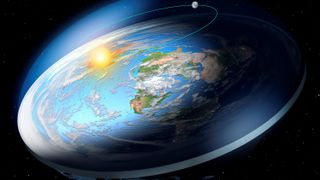
Earth — the blue marble — is our spherical home. Only what if Earth were apartment? After all, some people, called flat-earthers, truly believe in this retrograde idea. How would everyday life function? Would it part at all? We explore how much of an oddball, or "oddslice" Earth would be if it were flat and whether there are any advantages to living on a foreign disk with the sun and moon rotating overhead like a catholic carousel.
1. Say goodbye to gravity (at least every bit nosotros know it)

On spherical Globe, gravity tugs equally on objects no matter where in the world they are. For World to accept the shape of a flat disk in the first place, gravity — equally we know it — must be having no effect. If it did, it would soon pull the planet back into a spheroid.
Perhaps a apartment-Earth would have no gravity at all, as a solid disk-like Earth would not be possible under actual gravity conditions, according to calculations in the 1850s by mathematician and physicist James Clerk Maxwell.
Or perhaps on a apartment-Earth, gravity would pull everything to the center of the deejay — the North Pole. In that scenario, the farther away you lot are from the Due north Pole the more than horizontal the gravitational tug toward the fundamental bespeak of the deejay, according to James Davis, a geophysicist at Columbia University'southward Lamont-Doherty Earth Observatory. This would wreak havoc worldwide, but at least the earth long jump record would be easily beaten (every bit long as you orientated yourself northward earlier taking off that is).
2. It would certainly clear the atmosphere
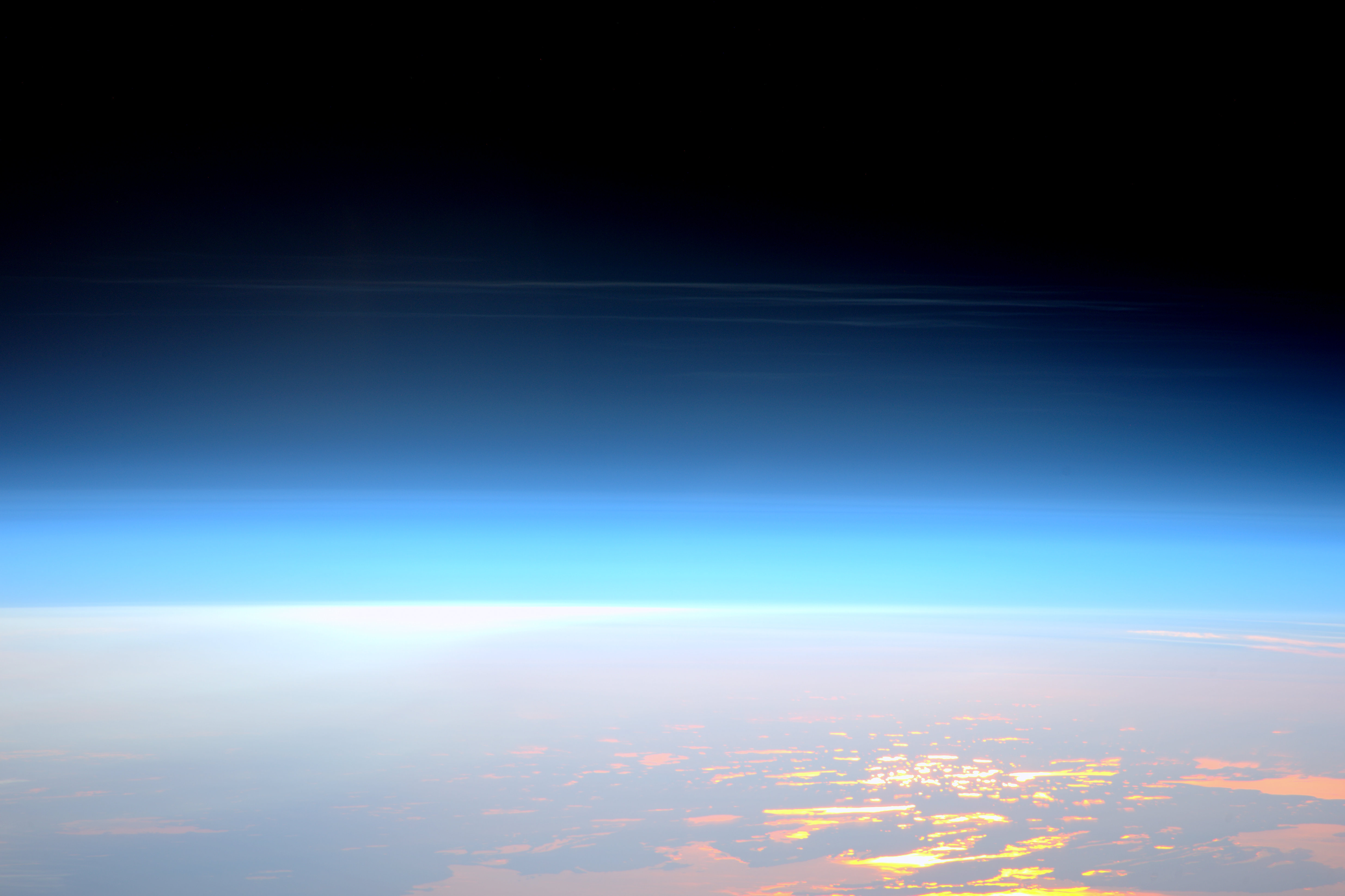
With no gravity, flat-Globe would no longer be able to hold onto the layer of gases called the atmosphere. The force of gravity is what holds this veil around our planet. And without this protective blanket, Earth'due south skies would turn black because light emitted from the sunday would no longer scatter every bit it enters Earth'south atmosphere and paint the skies the familiar blueish nosotros run into today. The loss of atmospheric force per unit area would expose plants and animals to the vacuum of space, leading to asphyxiation in seconds, Luis Villazon, a zoologist and educator, wrote in BBC Science Focus.
Without an atmosphere surrounding the planet, water would initially eddy away in the vacuum of space. That's because water boils when its vapor pressure level equals that of the atmosphere, so lower atmospheric pressure means lower boiling bespeak. Without an atmosphere to assistance warm the planet, the surface temperature would also plummet causing any remaining water to apace freeze. But it isn't all bad news, as deep-bounding main organisms such equally chemosynthetic bacteria that don't require oxygen might merely survive. After all, such leaner accept endured long trips to space and lived to tell the tale.
3. Cloudy with a take a chance of sideways rain
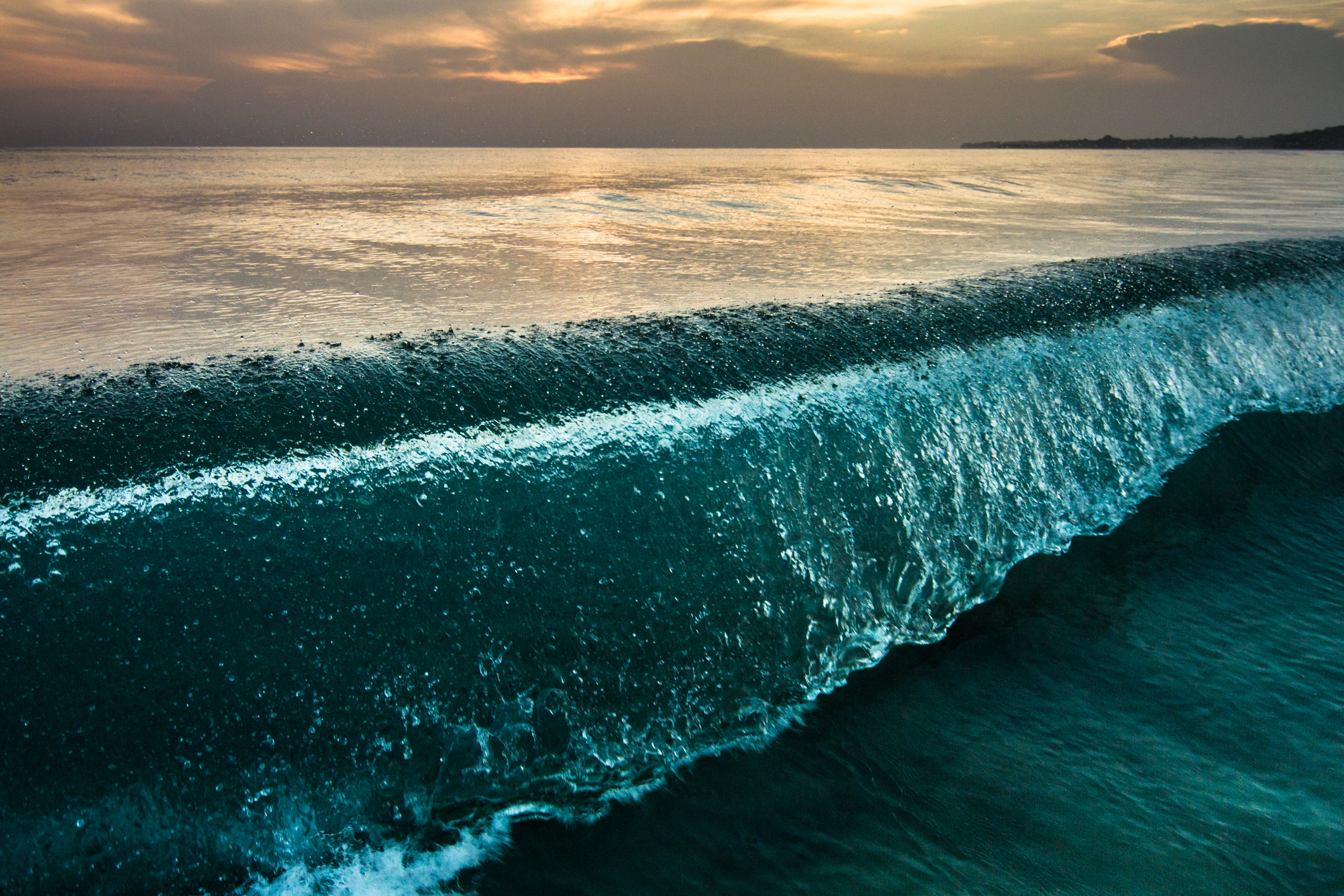
If gravity pulled toward the eye of the planetary deejay, which in this case is the Northward Pole, precipitation would likewise gravitate toward that spot. This is because precipitation falls to World due to gravity and will therefore autumn toward the point of strongest gravitational pull.
Simply at the center of the disk would atmospheric condition deport as nosotros know it on World — falling directly down. The farther out you travel, the more horizontal the precipitation would exist. H2o in rivers and seas would also menses toward the North Pole, significant vast bulging oceans would collect at the middle of the planet, leaving practically no water at the edges, according to Columbia University's Lamont-Doherty Earth Observatory.
4. We would all get lost

It is likely that satellites would not exist if the World were flat, as they would take trouble orbiting a flat plane. "In that location are a number of satellite missions that society depends on that just wouldn't work," James Davis, a geophysicist at Columbia University'southward Lamont-Doherty Earth Observatory, said in a statement "I cannot think of how GPS would work on a flat Earth," said Davis.
We depend on Global Navigation Satellite Systems (GNSS) for anything from the GPS services on your telephone, to travel information and supermarket merely-in-time stock direction to make sure produce arrives as fresh and as quickly as possible. And critically, emergency services use GPS to locate callers from their phone signal, the satellite communications could possibly salvage your life.
It's difficult to imagine a world without GPS, suffice to say we'd be lost. On the upside, at least on flat-Earth humans would have the horizontal pelting to point u.s.a. in the right — well, n — direction.
v. Some journeys would have forever
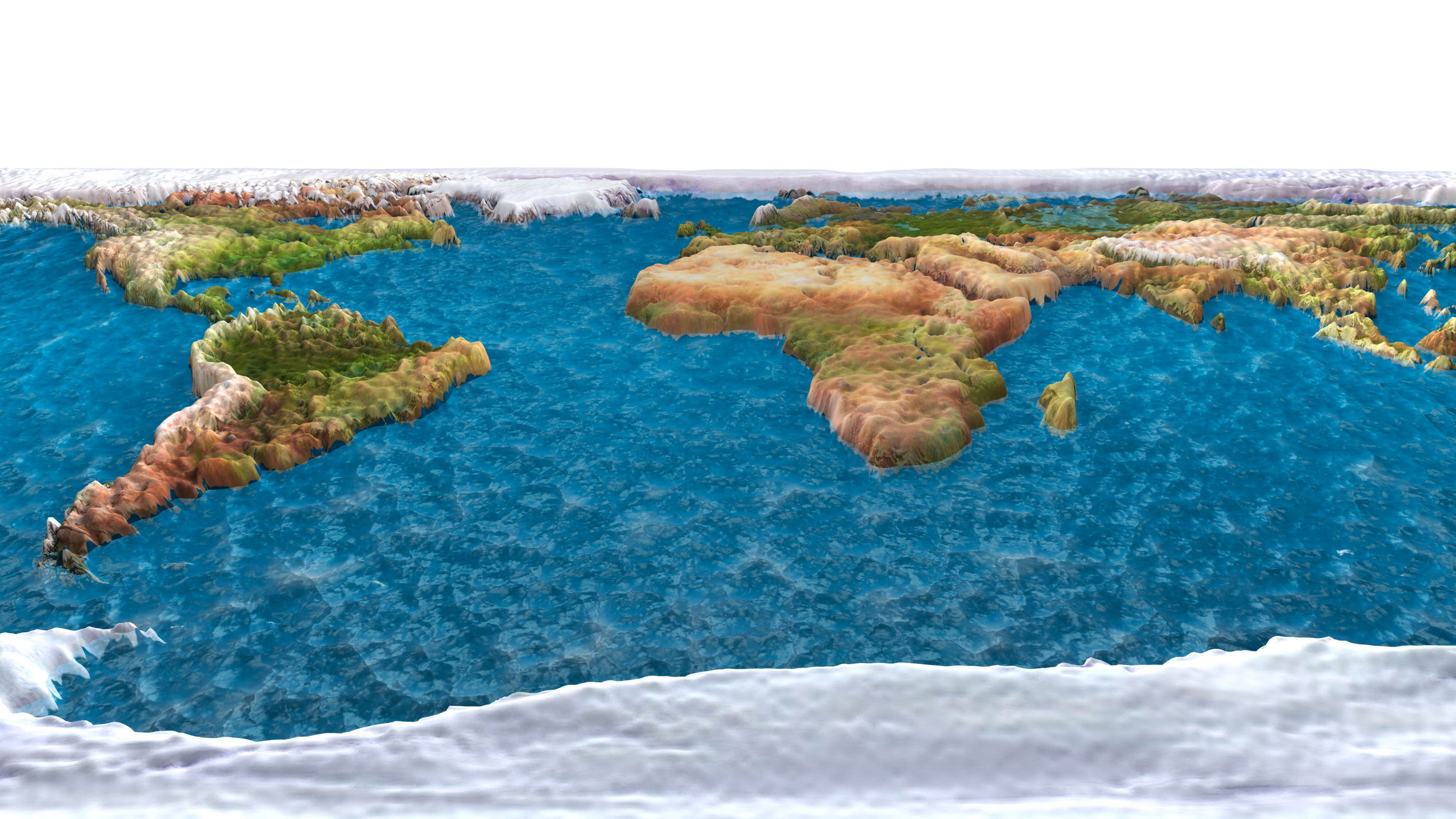
Longer travel times can be expected, not just due to no-GPS navigation issues, but also because of the distances we would demand to travel. According to flat-Earth belief, the Arctic lies in the center of the planet and Antarctica forms a behemothic water ice wall around the edge; this wall conveniently stops people from literally falling off the face of World. But if you are unable to fly around the world and instead are forced to fly beyond it, then travel times would increase significantly. For example, to fly from Commonwealth of australia (which is one side of the apartment-Earth map) to a McMurdo station in Antarctica (on the other side of the flat-Earth map), you lot would need to fly beyond the entire Arctic, as well as North and South America. Y'all can also forget virtually trips across Antarctica (though this has been achieved many times on a spherical Earth), as that pesky water ice wall would prevent such travel.
6. No more auroras and we'd all be roasted
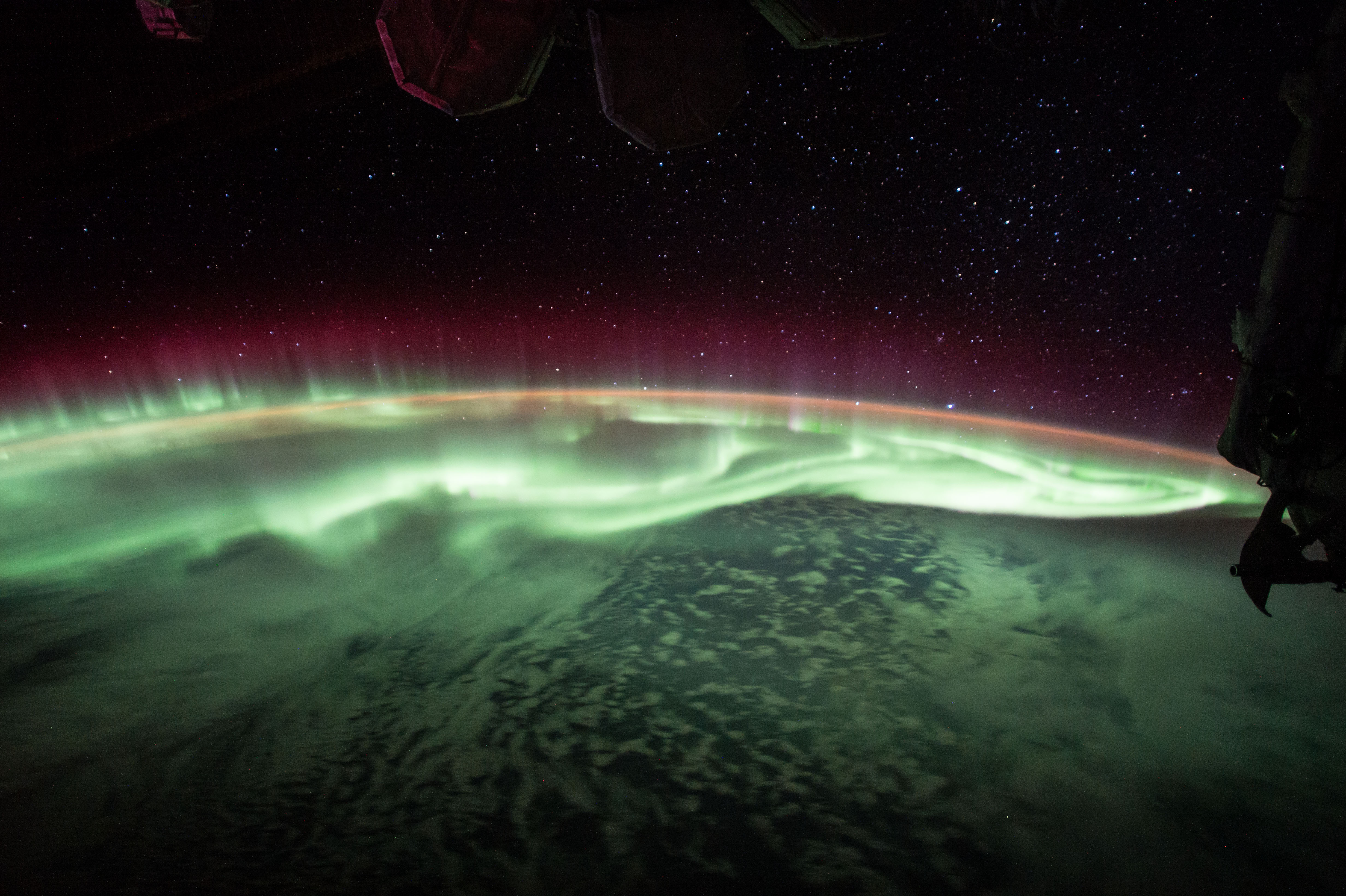
On spherical Earth, the swirling molten metal surrounding our iron cadre generates electrical currents that in plough create our protective magnetic field which curves around the planet from one pole to the other, according to NASA. But on a apartment Earth, without a solid core generating a magnetic field that protective layer — the magnetosphere — would cease to be. And and then would auroras. Also called the Northern Lights, these sky shows form when charged particles from the sun crash-land into oxygen and nitrogen molecules in the magnetosphere, where they release energy in the form of incredible aurora light shows.
Even so, the absence of auroras would be the least of our worries, equally Earth would no longer exist protected from solar winds. Earth and everything on its surface would be bombarded with harmful solar radiation, leaving a barren world akin to our neighbor Mars, according to NASA.
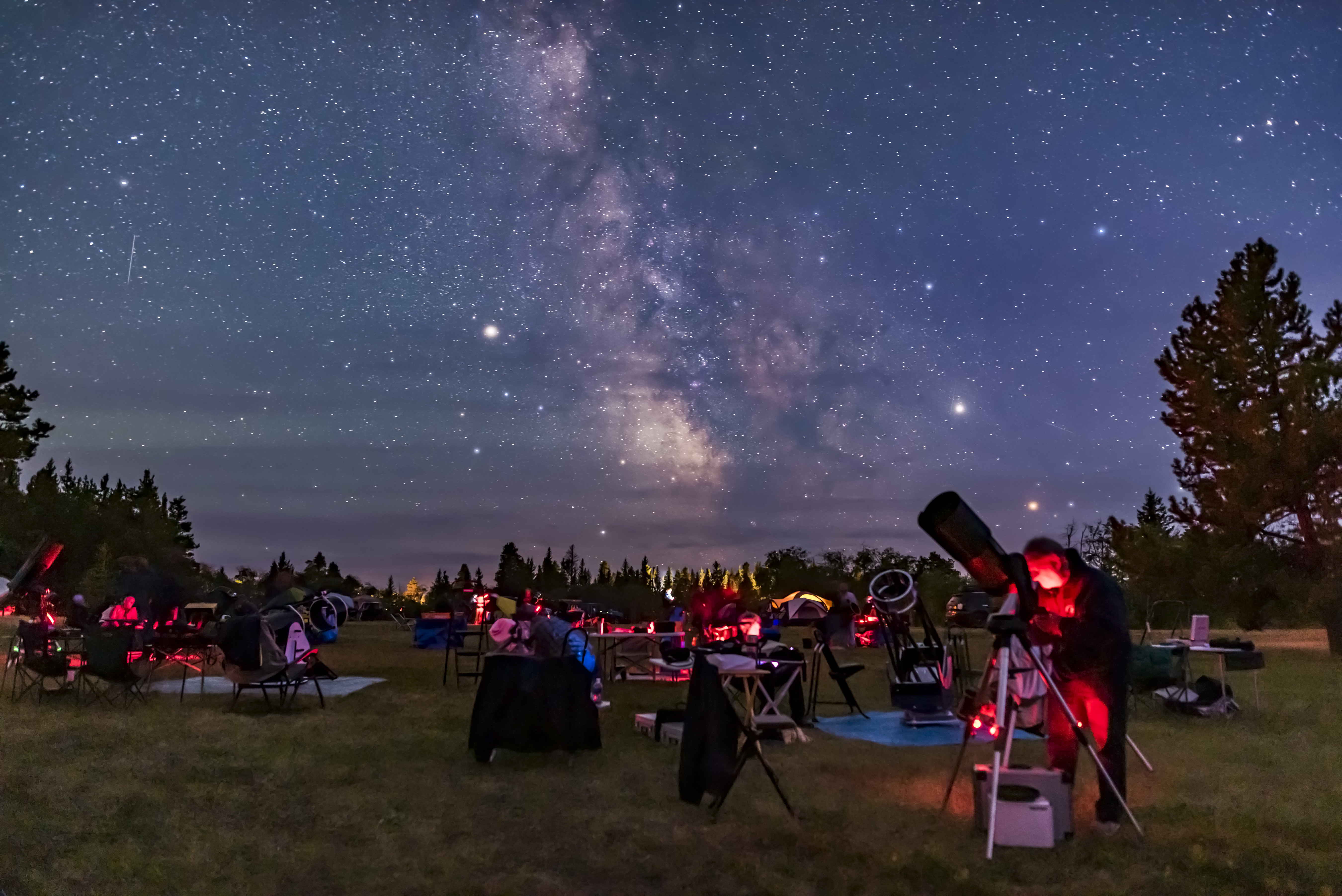
A flat-Earth would not be split into hemispheres like it is on our current orb: Then nighttime and day wouldn't exist flip-flopped depending on whether you're in the Northern or Southern hemisphere. Also, the nighttime heaven no matter where you stood on the planetary disk. It sure would make stargazing easier, as you wouldn't have to travel to a unlike hemisphere to tick off all the targets on your astronomy bucket list. But isn't that role of the fun?
If we all shared one view of just 1 portion of the night sky, we'd miss out on the many ground-based discoveries that have been fabricated due to our access to a 360-degree view of the observable universe from Earth. Nosotros'd have to solely rely on space-based telescopes to widen our view of the cosmos.
8. Hurricanes would exist a thing of the past
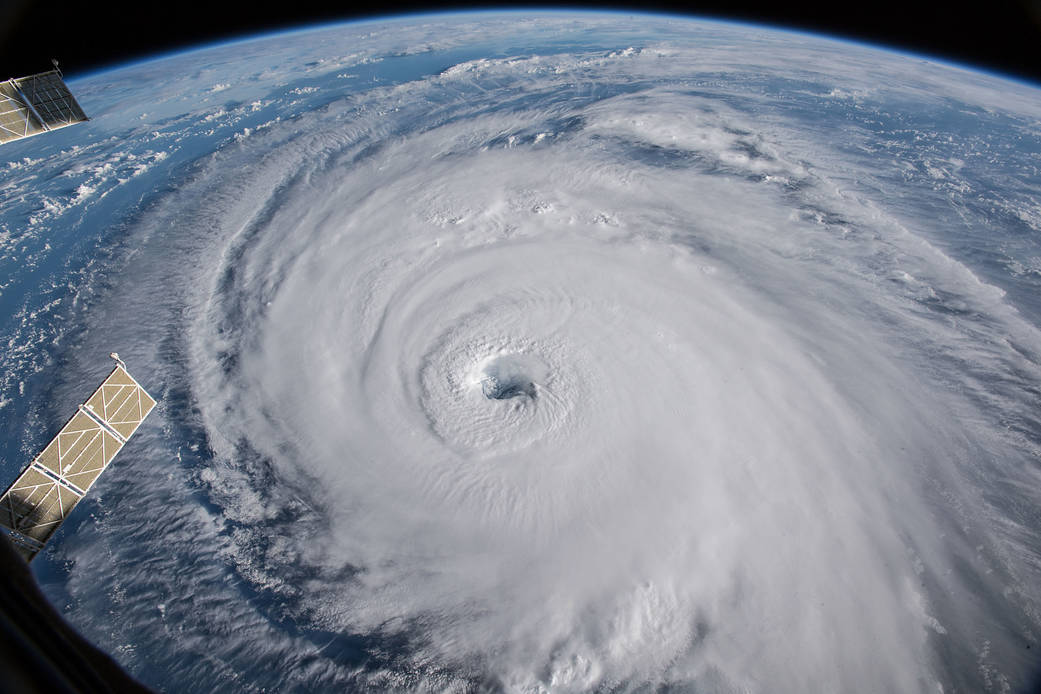
Every year, hurricanes (besides called typhoons and cyclones depending on the location where they class) cause unprecedented impairment. In 2017, Hurricane Harvey alone caused $125 billion (£90 billion) worth of damage to the U.S., according to NOAA.
The devastating rotating nature of these tropical storms stems from Earth'due south coriolis upshot, which causes storms in the Northern Hemisphere to rotate counterclockwise and those in the Southern Hemisphere to rotate clockwise. However, on stationary, flat-Earth, no coriolis event would be generated. No coriolis ways no hurricanes, typhoons and cyclones. This is too why nosotros don't see these types of storms between v degrees north and s of the equator, equally the magnitude of the coriolis consequence is cipher at the equator, according to NASA.
Additional resources:
90 Years of Our Changing Views of Earth
Why some people believe the World is flat
Why are things in space the shape that they are?
This article was updated August 23, 2021.
Source: https://www.livescience.com/flat-earth-weird-effects.html

0 Response to "Flat Earth Say That Again but Slowly"
Post a Comment